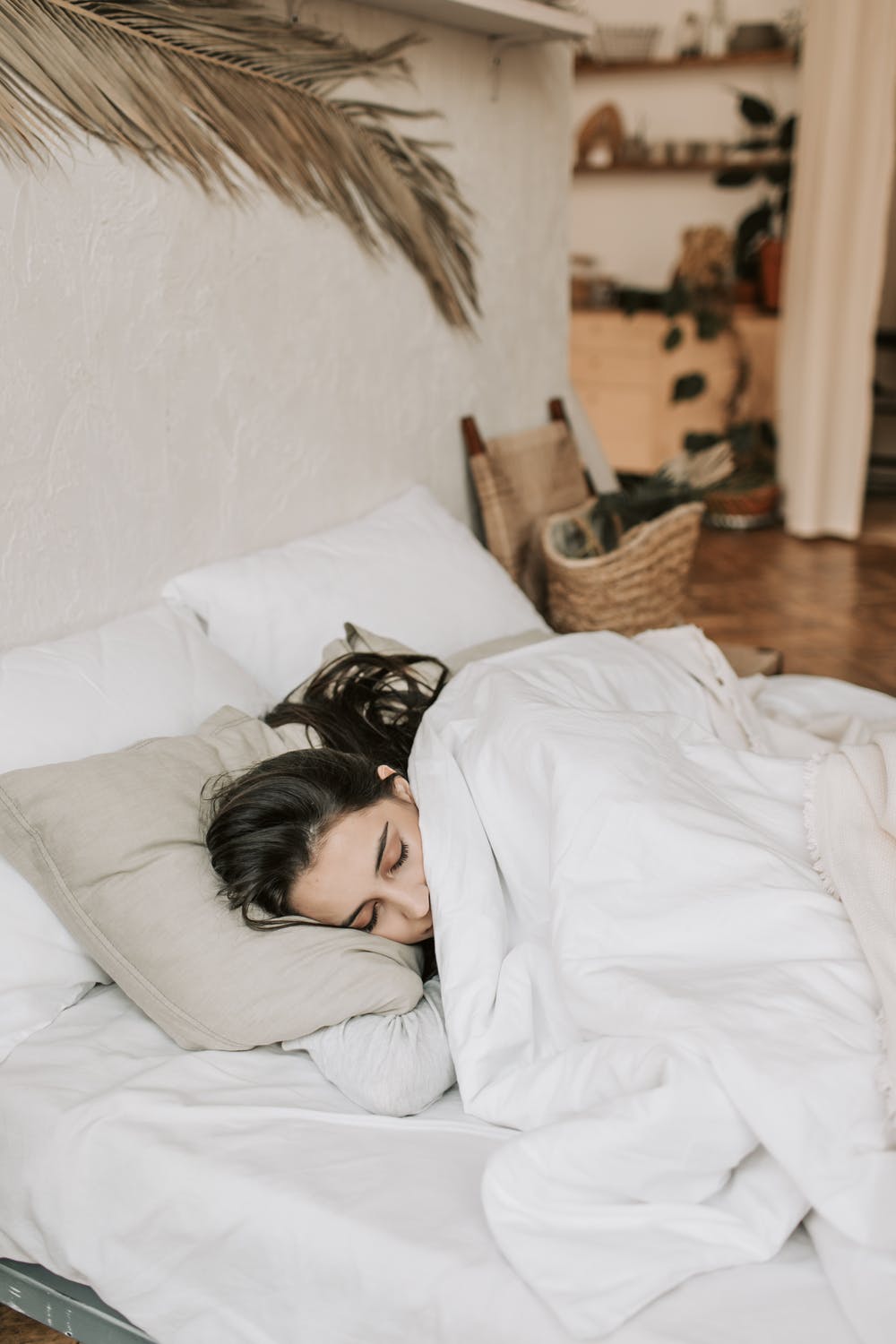The odds that someone is currently searching for how to wake up at 4am everyday or wake up early are high. We all have deadlines to meet, work to get to and many more to do. It helps when you begin your day early by learning how to wake up at 4am. This post is aimed at giving you tested tips on how to wake up at 4am
If you are having severe difficulties waking up in the morning it might be a medical condition, these include Parasomnias (such as Sleep Walking, sleep talking and night terrors), Sleep apnea which causes periods of stopped breathing during sleep, stress and anxiety, depression, Circadian rhythm sleep disorders.
There are a number of things you can do to help you wake up. If an underlying condition is causing your excessive sleepiness or drowsiness in the morning, you may need a combination of home remedies and medical treatment.
First of all Figure out what you need during the night — seven to nine hours per night is recommended — and aim to get to bed early enough so you wake up feeling refreshed. Stick to your sleep schedule every day, including your days off, and your body will eventually begin waking up naturally.
To improve your bedtime routine, try doing something relaxing before bed, such as reading or taking a warm bath. Avoid activities that’ve been shown to interfere with your circadian rhythm and cause sleeplessness, including:
- Looking at screens, like your laptop or phone
- Drinking caffeine within six hours before bedtime
- Take a Nap or spend too much time in bed during the day
- Drinking alcohol before bed
It also increases energy levels by reducing fatigue, including in people with conditions associated with chronic fatigue.
Enjoy the daylight
Daylight helps regulate your circadian rhythms and improve your sleep. If you get some sun first thing in the morning, it can help boost your mood and energy levels for the rest of the day. Try opening your blinds as soon as you get up, having your coffee outside, or going for a short walk.
You could also try sleeping with your blinds open so you wake up to sunshine – that is, as long as it’s not too bright outside your bedroom window at night. Gloomy day? No worries. Just turn on the lights or use a light-up alarm clock.
What Causes Sleep Disorders?
Sometimes it’s difficult to wake up early when you haven’t gotten enough sleep. So the most important tip on how to wake up at 4am is to get a good night sleep. Here are some examples of sleep disorders.
Insomnia
Insomnia may be a short time, temporary and stem from a simple cause, such as jet lag. Short-term insomnia may also be caused by an sickness, a stressful event, or drinking too much caffeine, for example. Many treatment have insomnia as a side effect.
Long-term insomnia may be caused by depression, worry, or stress. People can also become used to insomnia: They associate bedtime with difficulty, expect to have trouble sleeping, and become irritable (which can cause more insomnia).
Circadian rhythm disorders are an important but really less common cause of insomnia. Research shows that people who abuse alcohol or drugs often suffer from insomnia.
Sleep Apnea
Sleep Apnea also called snoring is When you fall asleep and the muscles in your body relax to cause snore sound. If muscles in the throat relax too much, your breathing may be blocked and you may snore. Sometimes, snoring is caused by allergies, asthma, or nasal deformities that make breathing difficult.
Signs you may not be getting enough sleep
Having trouble waking up in the morning is just one sign you’re not getting enough sleep. Excessive yawning, irritability, fatigue, excessive daytime sleepiness and increased appetite, when you don’t get enough sleep waking up early becomes imperative. You know that waking up early is one of the best ways to be more productive at school, workplace even in your family. You know that many of the world’s most successful entrepreneurs are early risers.
Amazing Tips on How to wake up at 4am
1. SET AN ALARM 5 MINUTES EARLIER
Setting your alarm earlier doesn’t always mean you’ll rise earlier. If you find yourself constantly hitting “snooze” until your regular wake-up time, your body probably needs time to adjust.
Instead of a 4 a.m. wake-up right away, set your alarm five minutes earlier than your normal waking time every two day interval until you’ve reached your goal. Always avoid pushing the snooze button, tempting as that snooze button and getting “just a few more minutes” may be, falling back asleep after waking is sleep fragmentation. According to research, sleep fragmentation increases daytime sleepiness and grogginess, decreases performance, and makes you feel run-down. If you’re accustomed to hitting snooze, try moving your alarm away from your bed so you have to get up to turn it off.
For example:
Current wake-up time: 7:00 AM
Goal: 4:00 AM
Tomorrow: 6:55AM
Two days later: 6:50AM
Another two days later: 6:45AM

2. ENGAGE IN A LIGHT ACTIVITY/TASK WHEN YOU WAKE
Waking up at 4 a.m. certainly gives you a lot of extra quiet hours to get things done, but if your normal wake-up time is 8:30 a.m., you won’t succeed at learning how to wake up at 4am right away. The best results in making your body get custom to your new waking time is to engage in an activity, for some early morning jogging is a great way to start the day, while other prefer writing, some sing during their quiet hours.
Consider an activity less stressful. The logic is that your body gets used to your new activity a makes it a norm over time.
You can re-visit your wake-up time after you’ve met your first goal, but you must walk before you can run.
3. USE PEER PRESSURE TO WAKE EARLY
Set a meeting with other early risers first thing in the morning. Remember birds of same feathers folk together
This is effective because:
- It creates accountability; you won’t want to let them down.
- It uses biological signals; studies have shown that when we have something important to do at a certain time, our bodies will wake us up naturally. That’s why you wake up right before your alarm if the task is important enough.
- You’re putting something at stake—your reputation as somebody who follows through.
When your alarm clock is the only thing counting on you to wake up early, a warm bed is more compelling.
4. USE OTHER TIME MANAGEMENT TOOLS AND DEVICES
You’re far more likely to stick with a habit if you engineer your environment. For example, you’re more likely to get into shape if there is a gym close by and you gym clothes are set out.
Here is how you can use time management devices and tools to wake up early:
- Put your alarm clock across the room so you have to get up to turn it off.
- Set your to do list somewhere very visible.
- Put out a warm robe before bed so you can easily access it when you get out of bed.
Improve your Eating culture: Eating a healthy diet increases your energy and helps you sleep better. On the flip side, foods that are generally considered unhealthy can make you feel sluggish and zap your energy. Aim for a well-balanced diet full of foods that will give you energy, like fruits and vegetables, whole grains.
Get Regular Exercise: Exercise has been proven to improve sleep and conditions that can cause insomnia and excessive sleepiness, such as anxiety and depression. It is very important that you invest in yourself and doing the aforementioned can help you do that.
5. TROUBLESHOOT EXTRA CAUSES OF LATENESS
What actions are you taking that cause you to fail? Analyze exactly what you’ve already tried to wake up earlier:
- What steps have you taken?
- Why did they fail?
- What could have been done differently?
If I’ve previously tried setting my alarm but didn’t get out of bed because the house was cold, I could have anticipated that issue and set out a robe and slippers the night before.
Be honest with yourself. Why have you failed before?

6. TRACK YOUR SUCCESS
Tracking your progress is one of the secret accountability skills that you should know. A few weeks of consistency and determination will bring success. This chain can motivate anyone to become a pro on how to wake up at 4am everyday.
